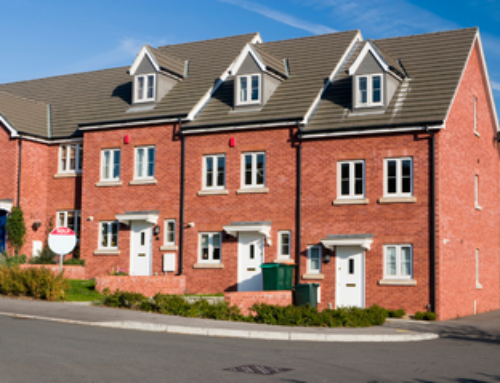Whether you are a first-time buyer or looking for your next family home, choosing between leasehold and freehold properties is a big decision that should be carefully considered before buying. Our friendly property law experts here at Beeston Shenton understand that you may not be sure which option is right for you, so we’ve put together this comprehensive guide to property ownership options to help you come to a decision. Find out more about leasehold vs freehold properties and how each can benefit you below.
What does leasehold mean?
Leasehold refers to a property that is owned by a freeholder, who then leases the property to you for a certain number of years. The lease length can vary. When you buy the property, you are purchasing the lease from the owner which allows you the right to live there. The freeholder (landlord) still owns the property and the land that it’s on. Leasehold properties are usually flats or apartments, as they are larger buildings with multiple living spaces. During the time that you live there, you will be required to make scheduled payments to the freeholder.
It is the freeholder or landlord’s job to manage, maintain and repair the building if required and to manage the land outside if you are living in a flat or apartment. Leasehold contracts will contain clauses that ensure you look after the property and keep it in good order. They may also contain clauses that state the things you shouldn’t do whilst living there:
- You might not be able to keep pets.
- You won’t be able to make significant changes to the property (such as a bathroom or kitchen renovation).
- You won’t be able to sublet the property out to other parties.
There are a range of advantages and disadvantages of leasehold properties that you will need to take into consideration before you decide which ownership option is best for you.
Advantages of leasehold property
The main advantages of owning a leasehold property include:
- Leasehold properties are usually cheaper than freehold – scheduled repayments may not cost as much as a mortgage. This is typically because owning a leasehold property carries more risk.
- The freeholder or landlord is responsible for any maintenance or repairs. This may include structural (interior and exterior), plumbing and anything related to the electrics or water.
- The freeholder or landlord is responsible for any maintenance in communal areas. This may include the outdoor space.
- The freeholder must obtain building insurance for the property.
Disadvantages of leasehold property
Some disadvantages of owning a leasehold property include:
- You must pay service and maintenance charges to the freeholder, which could increase at any time.
- You may not be allowed to keep pets on the property.
- If you would like to make any change to the property, you must get permission from the freeholder and this could come with costly fees.
- You might not be allowed to run your own business from the property.
- You might not be able to let the property out to another party.
- If there aren’t as many years left on the lease, it may become difficult to sell and you may not be able to benefit from house price increases. If the property you’re looking to buy has less than 83 years left on the lease, you should consider looking elsewhere. There may also be an opportunity to extend the lease, but this will come with a fee.
- Conveyancing fees may be higher.
What do I need to know before owning a leasehold property?
As well as paying your bills and rent, there are other payments that you need to consider before deciding whether a leasehold property is suitable for you and your circumstances:
- Ground rent – this is an annual payment made to the freeholder and is paid because you are leasing the land the property is on. It is not the same as normal rent, which is paid monthly to the landlord. Ground rent is an additional charge on top of your normal rent. However, as of June 2022, this payment no longer applies to those who are entering into a lease after this date. Those who entered the lease before June 2022 will still be required to pay ground rent.
- Maintenance and service fees – all leasehold properties require you to pay maintenance or service charge. This will help with the upkeep and maintenance of the communal areas, such as gardens, corridors, lifts or building insurance. It is typically a fixed payment, but it can change every year – it’s important to discuss these fees with your solicitor so you understand what you are responsible for.
- Restrictions – with most leasehold properties, there will be things you can and can’t do. This may include:
- Keeping pets
- Renovating or changing the structure of the property
- Hanging washing out on a balcony
- Sub-letting to others
- Running a business from home.
What does freehold mean?
The alternative to leasehold is freehold. This means that when you buy the property, it and the land that it sits on is owned by you. You will be responsible for all of the costs associated with the property, including outside maintenance, repairs or renovations. Most houses are sold as freehold, although some flats or apartments can be sold on a freehold basis. Some of the same charges will still apply.
Share of freehold
If you live in a leasehold property, you and other leaseholders in the building may be able to buy the freehold from the freeholder. This could be other leaseholders in your block of flats. This usually happens if over half of the leaseholders agree to buy a share. This comes with a range of benefits including more control over your home and the costs you’re paying for. You may also be able to extend your lease easily for up to 990 years.
If you decide to do a share of freehold, it may be quite expensive. A company must be set up to help manage the building as the landlord would have done or you must find a managing agent to look after it for you.
Commonhold properties
Commonhold properties are very similar to a share of freehold, where the tenants form an association where they own the building, land and communal areas. They are responsible for repairs, management and maintenance of the property. The only difference is that there is no time limit for you owning the property, like in a leasehold.
Advantages of freehold property
The main advantages of owning a freehold property include:
- You have complete control over the property – you can renovate and extend (as long as you have planning permission), decorate and maintain the property however you want without the permission of a landlord.
- You don’t need to worry about the lease running out or how many years you’ve got left on the lease.
- Property prices rise over time and you’ll be able to sell the property for a substantial amount.
- You don’t need to pay maintenance or service charges.
- You don’t need to consult with the freeholder if something needs to be done on the property.
Disadvantages of a freehold property
Some disadvantages of owning a freehold property include:
- You will need to pay for any repairs or maintenance on the property, including plumbing, electrics and water. This can be costly.
- It is not the cheapest option, as there are associated fees and costs that come with buying a freehold property, as well as the expected deposit.
Is a freehold or a leasehold property a better option?
When it comes to leasehold vs freehold, choosing the right option depends on the buyer’s circumstances. If you can afford the deposit and are able to pay should something need fixing in your home, then freehold properties are ideal for those who want complete control over their home. Others may want to consider the cheaper option or are happy to give ownership over to the freeholder. Leasehold properties still come with many rights that the homeowner has to protect their property. The decision is yours and it all comes down to whether or not the property feels like a home for you.
Property Law advice
If you’re looking to buy a property and aren’t sure whether to buy a freehold or leasehold, our expert team here at Beeston Shenton are happy to help guide you through the legal process. With close links to brokers, developers, estate agents and surveyors in the local area, we have access to meaningful advice tailored to individual circumstances and deal with all areas of property law. Contact us today to find out more about our services or to make an appointment with one of our solicitors. Alternatively, you can take a look at our 10 most important questions to ask your Conveyancing Solicitor.




